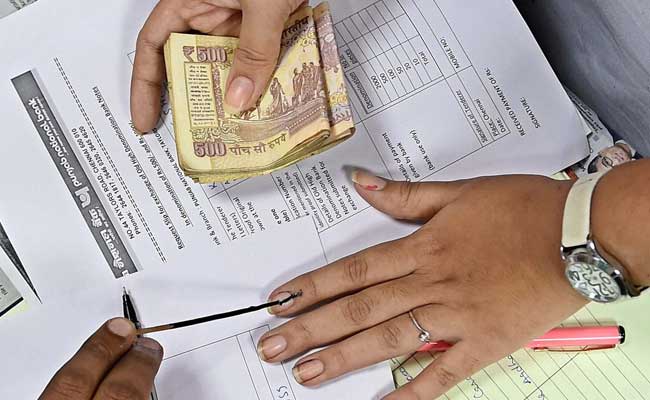
There will be no charge on the use of debit cards for now, the government said today, announcing more measures to make the sudden notes ban easier on people. In the Supreme Court, the government said around 88 billion dollars have been deposited in banks since the ban on Rs 500 and Rs 1,000 notes on November 8.
Here are 10 points:
Charges have been waived on the use of debit cards till December 31 by service providers, said Economic Affairs Secretary Shaktikanta Das.
The Reserve Bank of India or RBI has doubled the monthly limit for mobile wallets to Rs 20,000.
Cash will be given to cooperative banks to help farmers. A special limit of Rs 21,000 crore has been sanctioned for cooperative banks by NABARD or the National Bank for Agriculture and Rural Development.
To digitize toll collection across the country, the government has told car manufacturers to include Radio-Frequency Identification scanners in all new cars.
There will be no service charge on railway e-tickets booked till December 31.
All government organisations have been advised to use digital payment for salaries and other expenses.
There will be no charge on digital transactions through feature phones till December 31. 65 per cent of mobiles in India are feature phones, the rest are smart phones.
Out of two lakh ATMs, 82,000 have been recalibrated to dispense new Rs 2000, Rs 500 notes, Mr Das said.
More than Rs 6 lakh crores - or 88 billion dollars - have been deposited in banks after Rs 500, Rs 1,000 notes were scrapped on November 8, the government has told the Supreme Court.
It also said there has been a big surge in digital use of money transactions.

